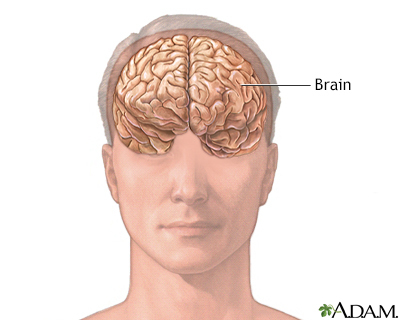IQ testing
Definition
Intelligence quotient (IQ) testing is a series of exams used to determine your general intelligence in relation to other people of the same age.
Alternative Names
Intelligence testing
Information
Many IQ tests are used today. Whether they measure actual intelligence or simply certain abilities is controversial. IQ tests measure a specific functioning ability and may not accurately assess a person's talents or future potential. Results of any intelligence test may be culturally biased.
The more widely used tests include:
- Wechsler Preschool and Primary Scale of Intelligence
- Stanford-Binet Intelligence Scales
- Differential Ability Scales
- Kaufman Assessment Battery for Children
Functioning abilities that are measured by these tests include language, mathematical, analytical, spatial (for example, reading a map), among others. Each test has its own scoring system.
In general, IQ tests are only one way to measure how well a person functions. Other factors, such as genetics and environment, should be considered.
Gallery

References
Blais MA, Sinclair SJ, O'Keefe SM. Understanding and applying psychological assessment. In: Stern TA, Fava M, Wilens TE, Rosenbaum JF, eds. Massachusetts General Hospital Comprehensive Clinical Psychiatry. 2nd ed. Philadelphia, PA: Elsevier; 2016:chap 7.
Chaves-Gnecco D, Feldman HM. Developmental/behavioral pediatrics. In: Zitelli BJ, McIntire SC, Nowalk AJ, Garrison J, eds. Zitelli and Davis' Atlas of Pediatric Physical Diagnosis. 8th ed. Philadelphia, PA: Elsevier; 2023:chap 3.